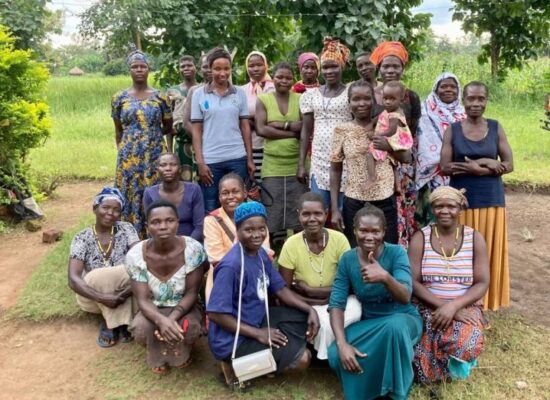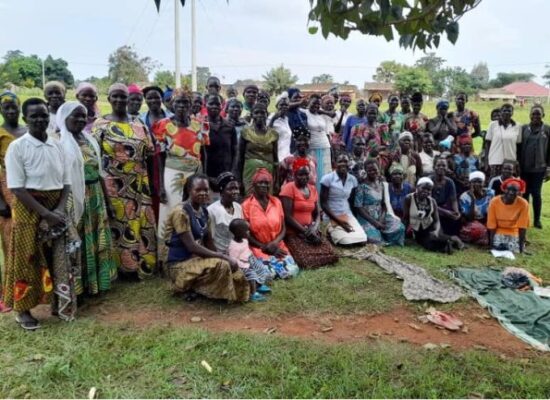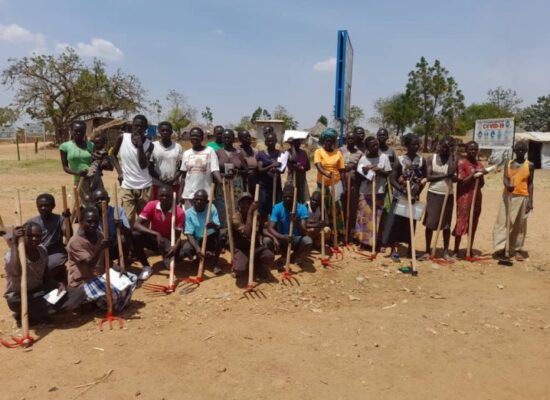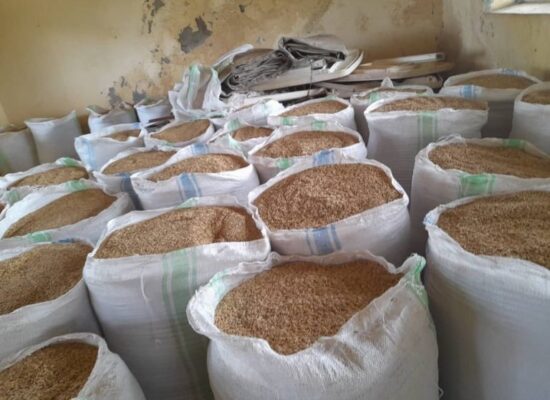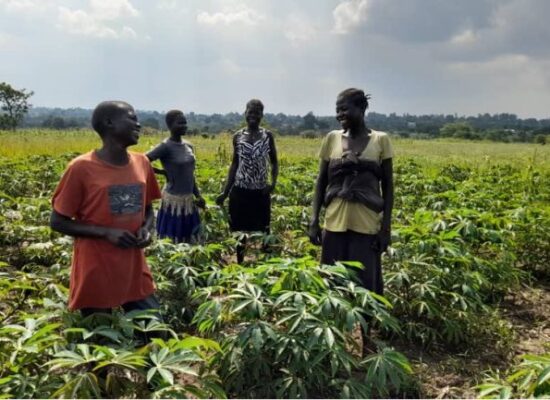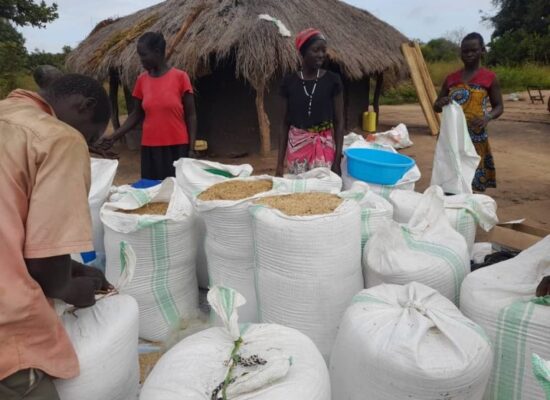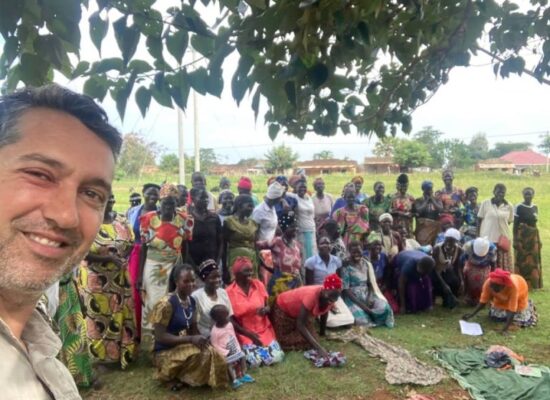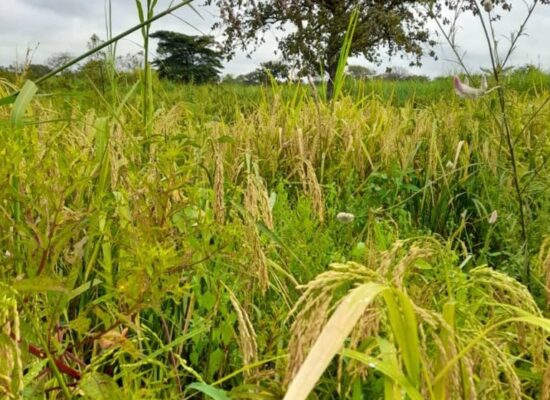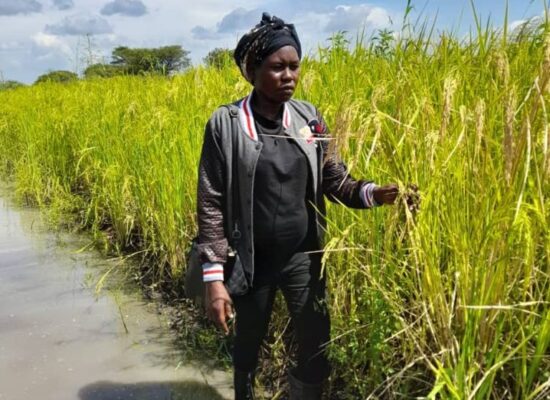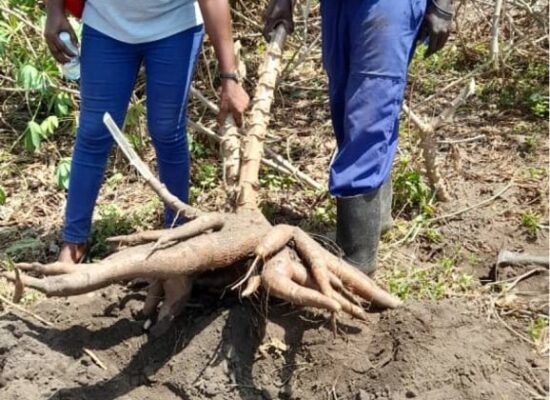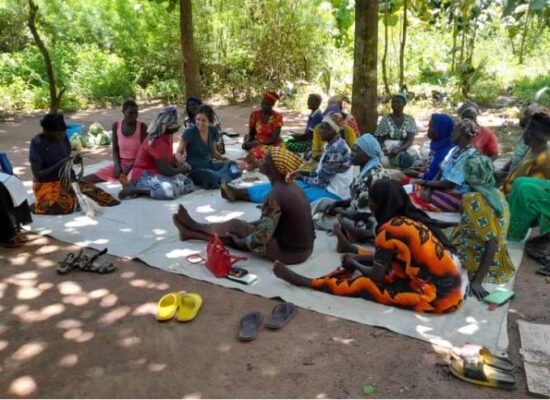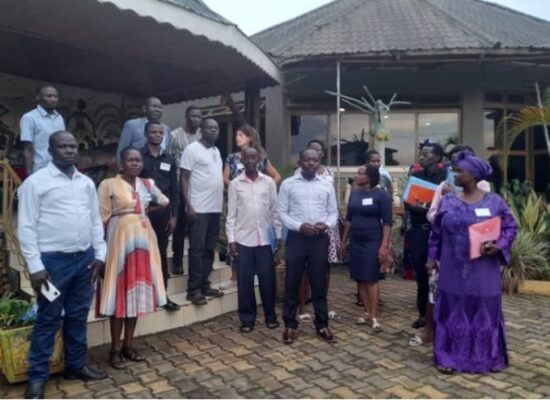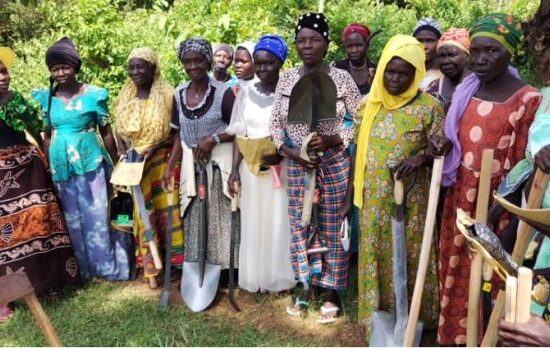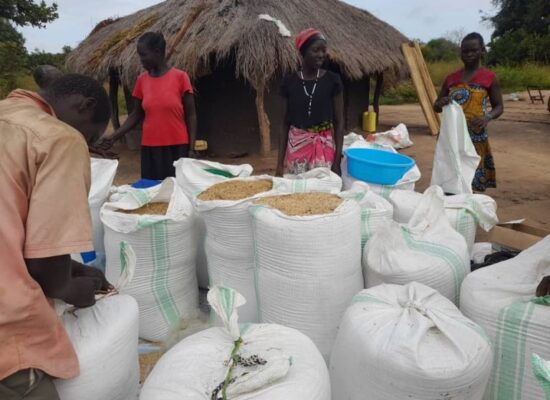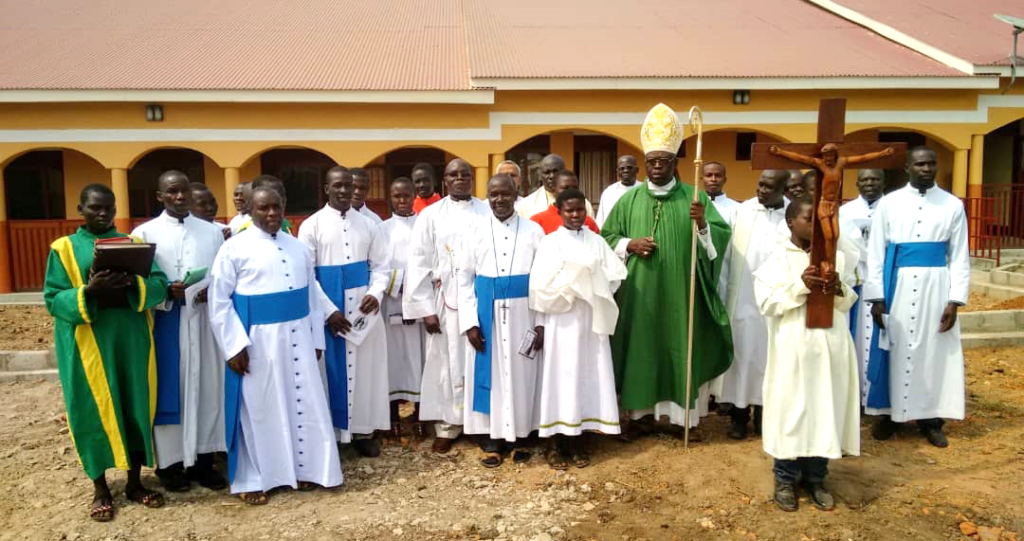
The Brothers of Immaculate Heart of Mary (BHIM) Direction
On 3rd March 2017 Brothers of Immaculate Heart of Mary (BHIM) signed the memorandum of understanding (MoU) with the office of the Prime Minister Refugees Department to support the refugees in Bidibidi settlement camp. The direction is inspired by the strong desire for Brothers of Immaculate Heart of Mary (BHIM) to relocate itself in a strategic position as to influence the Spiritual, social, and economic affairs in Uganda and practices that ensure human dignity and harmonious peaceful co-existence. Consequently there has been a review of the activities and the articulation of strategic objectives which are considered essential for the improved quality of life through harmonious peaceful co-existence. Therefore, Marian Brothers aimed at;
VISION: Increased household production, income level of refugees and Host communities of Bidibidi Refugee Settlement and Yumbe District.
MISSION: To contribute to sustainable human development through peaceful co-existence Livelihood interventions to address refugee crisis in West Nile.
Currently, Marian Brothers is giving livelihood support to the South Sudanese refugees in Bidibidi refugee settlement since 2016 to date as an operating partner in the field of Agriculture, Environmental protection, Financial Inclusion and Access to Financial Services (VSLAs and Micro Credits), Vocational skills trainings, Functional Adult Literacy program and Health.
FINANCIAL INCLUSION AND ACCESS TO FINANCIAL SERVICES (VSLAS AND MICRO CREDITS)
Limited financial institutions such as Banks and other Micro Finance Institutions made access to financial services very difficult for the refugees and the host community of Yumbe , which later inspired Marian Brothers to introduce the aspect of forming Village savings and Loan Associations for ease access of this financial services like saving for the future, borrowing of loans within the communities of the refugees and national as they got engaged in activities that would bring for them income like cash for work and Borrowing of Revolving fund which was given to this members of the savings groups inform of soft loans (micro credits) to empower them and improve on their income and increase their savings within the associations that were formed.
This aimed at improving house hold income for self-sustainability and resilience among the refugees and the host community. Therefore Marian brothers conducted the following activities during formation and monitoring of these VSLAs.
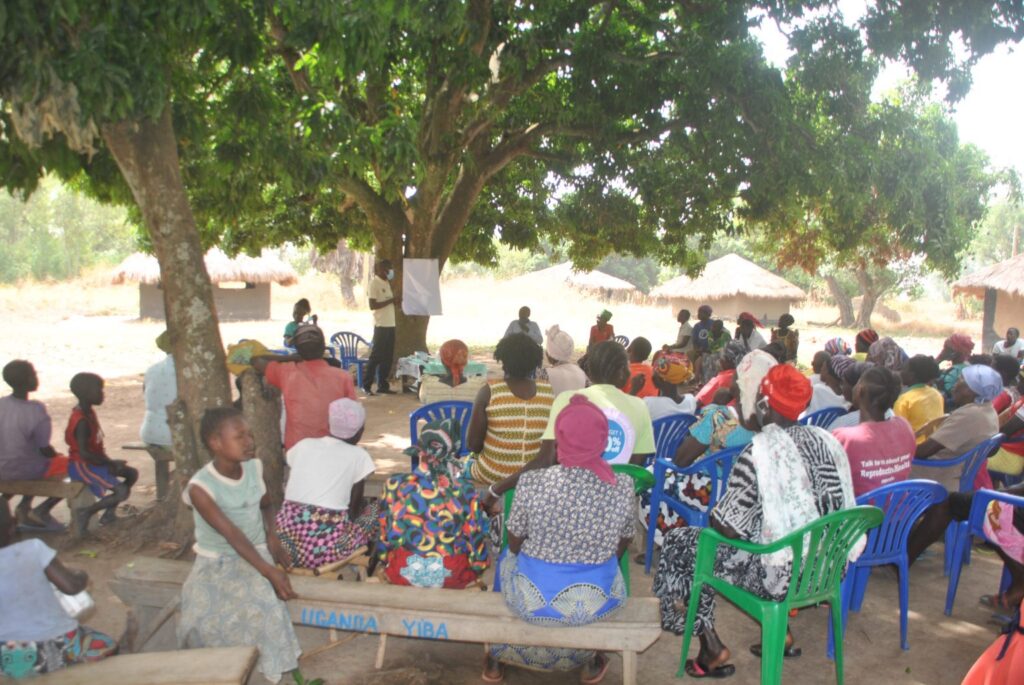
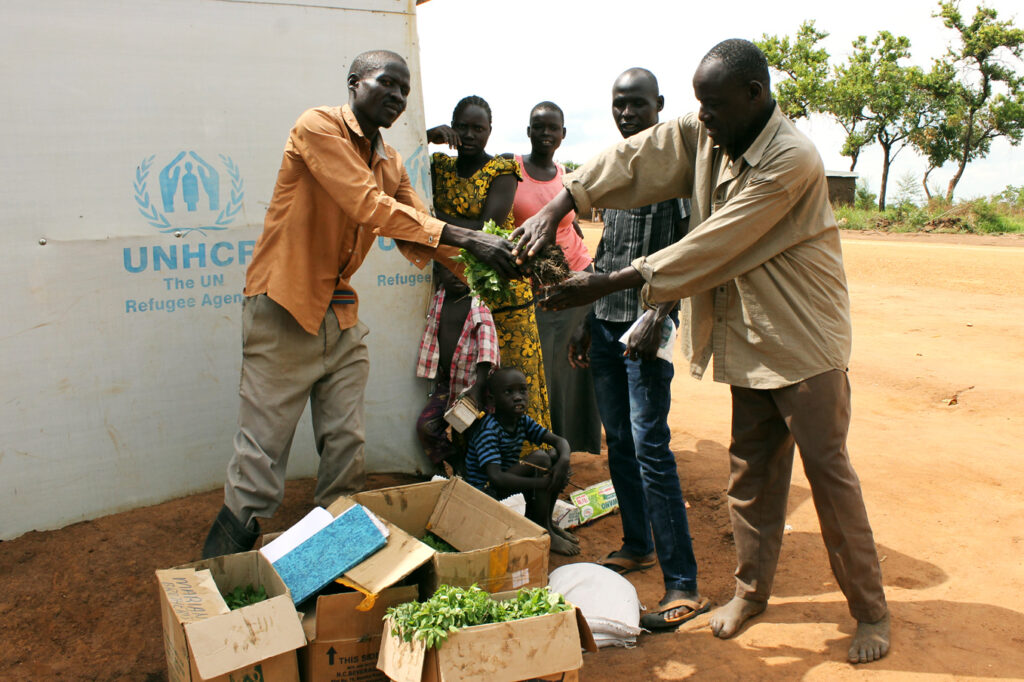
AGRICULTURAL LIVELIHOOD SUPPORT AND ENVIRONMENTAL
As Marian Brothers aimed at increasing production and food security in Yumbe district, they had undertaken different kinds of support like technical support inform of trainings, material support inform of farm imputes like tools, equipment, seeds and seedlings as stated below.
- Provision of best agronomic trainings to the refugees and the host community
- Use of climate smart agricultural practices to protect the environment
- Provision support in terms of Agricultural tools
- Provision of assorted seeds and seedlings for kitchen gardening to improve on the nutrition status of the refugees and the host community
- Marian Brothers supported the refugee and host communities with assorted tree seedlings of fruit and wood species
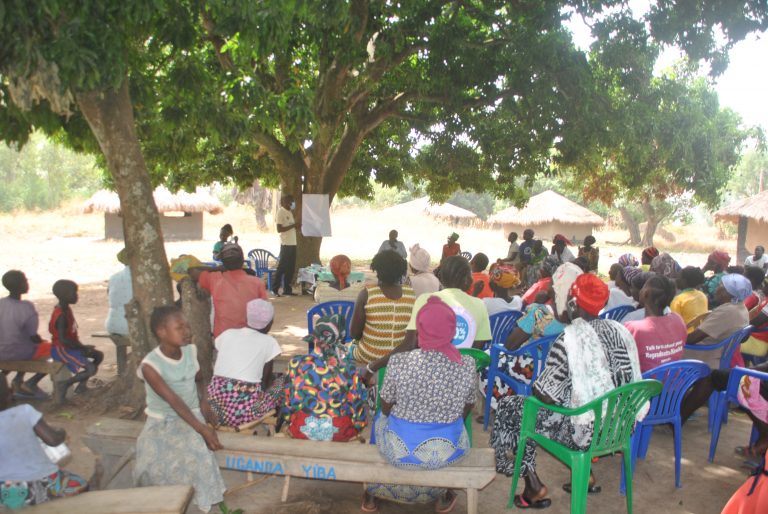
FUNCTIONAL ADULT LITERACY PROGRAM
This component of the training was given to the beneficiaries of skills training, VSLAs groups and it is aimed at training women to be able to read and write which would help in record keeping as it was one of the factor affecting the performance of businesses of some individuals who couldn’t be able to record their daily operations of the businesses they were engaged in. This made it difficult for the women to ascertain whether they are able to get profits or losses as this was discovered during monitoring and supervision of the individual businesses.
VOCATIONAL SKILLS TRAINING
Marian Brothers also help to empower youth especially school dropout girls and single mothers with non-formal skills trainings in courses like tailoring, catering, small scale modern animal/poultry keeping which be applied directly by the students as after completion, they are supported with startup capital inform of machines for tailoring, goats or poultry and construction of animal houses in the residence of the beneficiaries and provision of utensils and construction of eating places for the catering students after successful completion of courses of their choice.
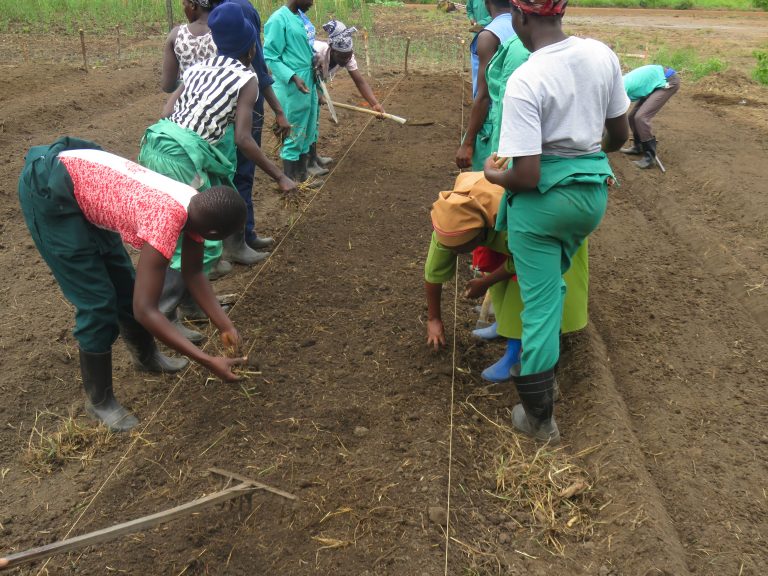
MARIAN BROTHERS IN PARTNERSHIP WITH UNHCR
MARIAN BROTHERS in partnership with UNHCR are implementing a block farm pilot project in BIDIBIDI refugee settlement and the host communities of yumbe in different blocks for the second season with farmers engaged to open up a minimum of an acre per household under production on large scale for both commercial and home consumption. This aimed at eliminating subsistence farming or small scale production to cope up with 60% food reduction ratio by WFP.
With UNHCR supporting with farm tools and cash payments done through mobile money and MARIAN BROTHERS supporting farmers with assorted seeds like rice, maize, Groundnut, etc depending on the needs of the farmers and also providing the technical guidance/ extension services to the farmers especially on the use of Good agronomic practices (GAPS) like good spacing, timely planting and maintenance of the crops in the fields to improve productivity.
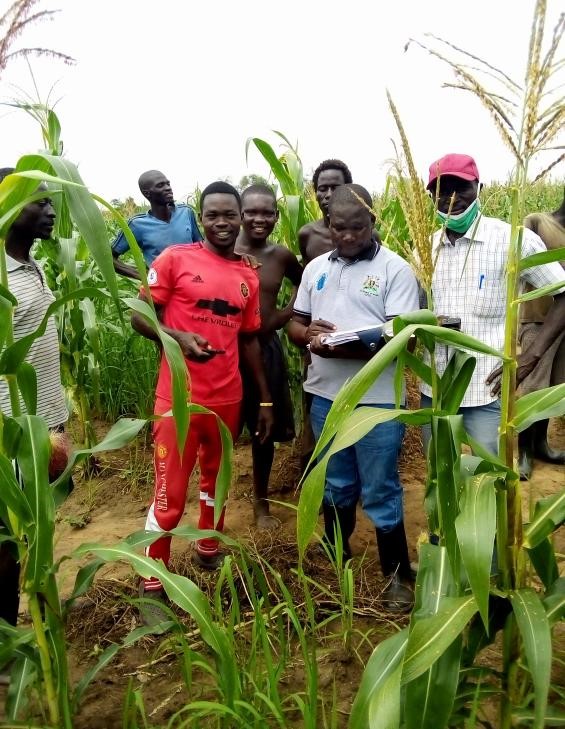
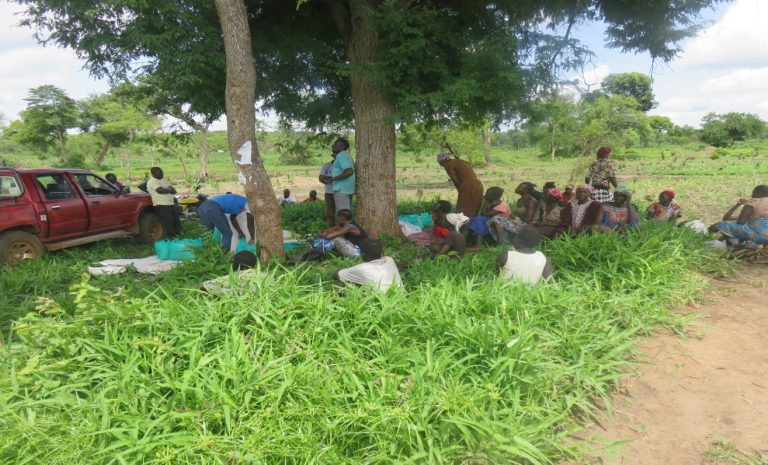
AGRICULTURAL LIVELIHOOD
Marian Brothers as a Humanitarian organization continues to support the refugees and the host communities of BIDIBIDI Refugee camp with agricultural support which is aimed at increasing food production to supplement the food received by the refugees from WFP and income of individual farmers and there household as well through provision of agricultural imputes, trainings on GAPs, and commercialization of agriculture through contract farming.
The main crops promoted are Maize, rice, cassava, sunflower, soya bean, cotton, under the block farm for both consumption and commercial purposes as the production under block farm is on bigger scale whereby the minimum acreage for a household is not less than one acre and above and the total acreage for the block farms under cultivation were in 2022 is 750 acres, for both seasons by 350 (Refugees=50%, Host=50%) farmers.
Whereas other enterprises like vegetables, Orange flesh sweet potatoes, simsim, sorghum, groundnuts and maize are promoted on small scales mainly in backyards, and individual plots for consumption only and we supported 1,000 households (Refugees=70%, Host=30%) for both seasons during the year 2022.
FINANCIAL SERVICES AND INCLUSION
We continued to supervise, provide support through mentorship trainings on VSLAs, provision of savings kits, business management trainings and supporting women groups with revolving funds to boost their businesses which in turn increases on their savings values and we were able to reach out to 1,200 beneficiaries who have received our support of financial inclusion through the VSLAs
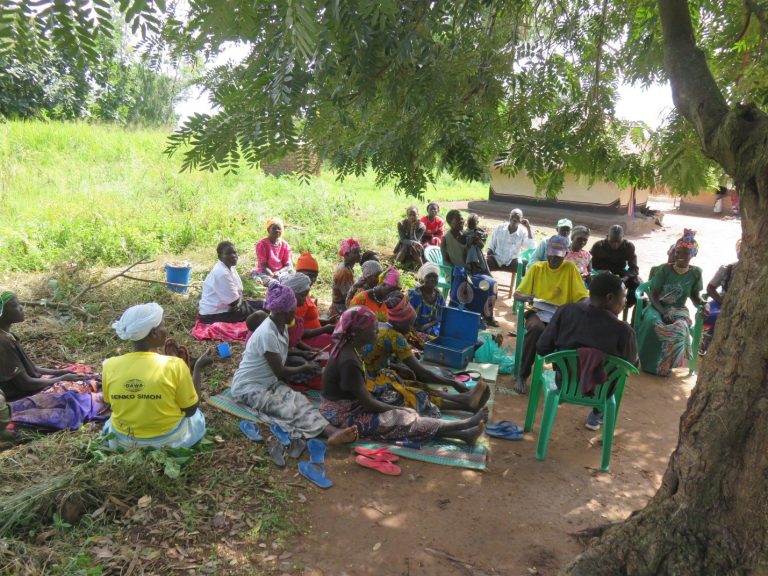
ABOUT ODOKIBO AGRICULTURAL TRAINING CENTRE
HISTORY
Odokibo Agricultural Training Centre (OATC) started as a farm in 1972 by Marian Brothers under the Stewardship of late Rt. Rev Frederick Drandua, the Bishop of Arua Diocese. It secured a vast piece of farmland that was later surveyed, fenced and titled.
Odokibo foray into development work started in 2011, triggered by the plight of people returning from exile in Sudan, Congo and other parts of Uganda. The returnees worked on the farm in return for packet of salt and tablet of soap. A
In 2003, Odokibo Agricultural Training Centre (OATC) formed five community groups from the women who worked on the farm thus initiating the wider community outreach it has been pursing ever since.in this, OATC received financial support from Arua Catholic Diocese, ABI ZARD, Gorta, And in 2008, Yumbe District Local Government granted it a Community Based Organization (CBO) registration status
Odokibo Agricultural Training center (OATC)
VISION
The OATC envision that “rural households in Yumbe are poverty free” Aware that poverty is loaded term that virtually means everything that affects people’s wellbeing and leading a dignified life, and aware that OATC would realistically not be able to fight such “everything” this vision statement represent OATC urge for realization of a sustainable food and income secure community.
OATC MISSION
To empower rural communities in Yumbe with -agricultural innovation for food security and vocational skills a sustainable self-development
OATC VALUES/ PRINCIPLES
- Quality services delivery without any social discrimination based on gender, age, physical ability and religious denomination
- Prompting the participation of stakeholders
- Team spirit as an engine for coordination, collaboration, and partnership
- Transparency and accountability to all stakeholders
- Self-reliance
- Hard work/self-directed/self-motivated
- Respect for one another
- Legal compliance
- Professionalism
OATC focus and achievements
From 2004 OATC adopted a center for community approach to poverty reduction in order to realize its vision in the following areas
- Agricultural extension services
- Seed multiplication
- Community outreach through community based organization (CBO)s
- Goat rearing
- Skill training
Odokibo Agricultural Training Centre (OATC) started as a farm in 1972 by Marian Brothers under the Stewardship of late Rt. Rev Frederick Drandua, the Bishop of Arua Diocese. It secured a vast piece of farmland that was later surveyed, fenced and titled.
Odokibo foray into development work started in 2011, triggered by the plight of people returning from exile in Sudan, Congo and other parts of Uganda. The returnees worked on the farm in return for packet of salt and tablet of soap. A
In 2003, Odokibo Agricultural Training Centre (OATC) formed five community groups from the women who worked on the farm thus initiating the wider community outreach it has been pursing ever since.in this, OATC received financial support from Arua Catholic Diocese, ABI ZARD, Gorta, And in 2008, Yumbe District Local Government granted it a Community Based Organization (CBO) registration status
Odokibo Agricultural Training center (OATC)
VISION
The OATC envision that “rural households in Yumbe are poverty free” Aware that poverty is loaded term that virtually means everything that affects people’s wellbeing and leading a dignified life, and aware that OATC would realistically not be able to fight such “everything” this vision statement represent OATC urge for realization of a sustainable food and income secure community.
OATC MISSION
To empower rural communities in Yumbe with -agricultural innovation for food security and vocational skills a sustainable self-development
OATC VALUES/ PRINCIPLES
- Quality services delivery without any social discrimination based on gender, age, physical ability and religious denomination
- Prompting the participation of stakeholders
- Team spirit as an engine for coordination, collaboration, and partnership
- Transparency and accountability to all stakeholders
- Self-reliance
- Hard work/self-directed/self-motivated
- Respect for one another
- Legal compliance
- Professionalism
OATC focus and achievements
From 2004 OATC adopted a center for community approach to poverty reduction in order to realize its vision in the following areas
- Agricultural extension services
- Seed multiplication
- Community outreach through community based organization (CBO)s
- Goat rearing
- Skill training

